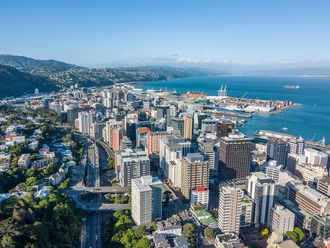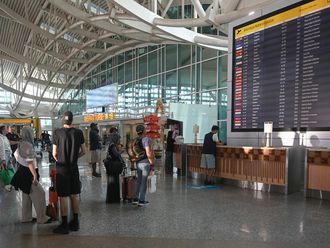JohannesburgJOHANNESBURG Rwanda is coming under increasing pressure to halt alleged support for east Congo’s latest rebellion, with the Netherlands suspending some aid and Britain delaying a payment for budgetary support.
Rwanda’s Foreign Minister Louise Mushikiwabo expressed regret on Friday at “hasty decisions based on flimsy evidence” by unspecified donors suspending or deferring aid.
The United States last week cut $200,000 in planned military aid. On Friday, the Netherlands said it was suspending 5 million euros ($6.1 million) promised to improve Rwanda’s judicial sector. And Britain, Rwanda’s biggest donor, said it was delaying a budget support payment scheduled this month.
London’s Financial Times newspaper quoted a Swedish aid official on Thursday saying Scandinavian countries on the board of the African Development Bank also forced the delay of a decision on the disbursal of $38.9 million in budget aid to Rwanda from last week until September.
The pressure comes as a group of UN experts who made the allegations in a damning report was visiting Rwanda. Their report published last month accused Rwanda of helping create, arm and support the M23 rebel movement in east Congo in violation of UN sanctions.
The uprising has brought the worst violence in years to that volatile country. It has forced more than 260,000 people from their homes in the past three months. And it is draining the resources of an already overstretched $1.5 billion a year U.N. peacekeeping mission in Congo.
Mushikiwabo maintained Rwanda’s vigorous denial of the charges despite overwhelming evidence, including from surrendered rebels who told UN officials that they were Rwandans who had been recruited and trained in Rwanda. The U.N. report also said some Rwandan soldiers were fighting alongside the rebels against Congo’s army.
Mushikiwabo said in a statement that she had just “comprehensively rebutted” all the allegations to the visiting U.N. experts.
Dutch Development Ministry spokeswoman Saskia Gaster said the country is “reconsidering” its aid program while awaiting Rwanda’s response to the allegations.
“Our position —-- in consultation with EU partners — will be based on both an assessment of Rwanda’s official reaction to the report and the developments in the field, including an immediate end to support to rebels in DRC from Rwandan territory,” she said.
While the amounts involved are small, the actions are considered a major rebuke of Rwanda, a darling of Western donors dependent on aid for nearly half its budget.
Rwanda’s President Paul Kagame has avoided sanctions despite numerous past transgressions of standards supposedly required in exchange for Western aid. His government has consistently suppressed all opposition at home. It denies charges that it sends hit squads to assassinate opponents abroad, though Britain’s Scotland Yard has warned several Rwandans living in exile there that Rwanda’s government has been plotting to kill them. Western donors demanded no sanctions after the publication last year of a long-delayed UN report accusing Kagame’s army of a possible genocide of Congolese and Rwandan Hutu people after they invaded Congo in 1994.
Some of the West’s lenience toward Kagame is motivated by guilt over their failure to halt the 1994 genocide of some 800,000 Rwandan Tutsis and moderate Hutus, which was ended by Kagame’s rebel movement. Western nations also are reluctant to cut aid because Rwanda has proved a stellar example of how well-managed aid can improve people’s lives. British aid to Rwanda, set at 80 million pounds ($125.5 million) this year, is considered to have played a major role in helping the one million Rwandan who have lifted out of poverty in the past five years — the fastest ever rate of poverty reduction ever achieved in Africa.












